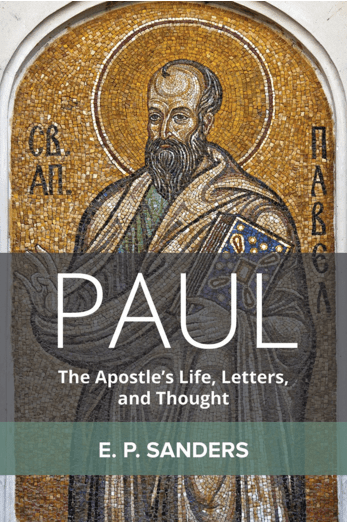So what is the “new perspective” on Paul, and thus also the “new perspective on justification”? If you listen to its critics, who (again) are mostly Reformed/Lutheran-leaning evangelicals, you would think it is Pelagianism or some kind of works-righteousness Christian progressivism.
The single-most important factor in perceiving the polemics at work here is that the new perspective (from now on NPP: New Perspective on Paul) folks believe they are beating the evangelicals (in Reformed thinking) at their own game: namely, they think they are being even more biblical. Thus, the NPP ultimately is an attempt to be reformed and always reforming. The problem, of course, is that the NPP at times denies or at least contests fundamental views of the Reformation. Which means some think it is actually a “new” Reformation, which it isn’t. When it comes to theology, and this is not the primary issue at work in NPP thinking, the NPP offers a greater precision to the Reformation.
 Thanks to the fine efforts of James Beilby and Paul Rhodes Eddy, we now have a new volume that sketches the NPP on justification in a whole chp; the book is Justification: Five Views (Spectrum Multiview Books). The chp is written also with Steven Enderlein and it is a breathtaking sketch … buy the book just for this chp!
Thanks to the fine efforts of James Beilby and Paul Rhodes Eddy, we now have a new volume that sketches the NPP on justification in a whole chp; the book is Justification: Five Views (Spectrum Multiview Books). The chp is written also with Steven Enderlein and it is a breathtaking sketch … buy the book just for this chp!
If you had to define the New Perspective, what would you talk about?
Here’s where the NPP has to begin, and until this is appreciated we get into fuzzy thinking:
1. The NPP is first and foremost a “new perspective” on Judaism. To wit, Judaism was not a works-oriented religion. This is where Ed Sanders’ 1977 book was so important: he argued Judaism was “covenant nomism.” One got into the covenant not by works but by election; one maintained one’s relationship to the covenant by works. But Judaism was not a works religion. One can argue that the “old” perspective almost needs that as its foil: for the old perspective the human condition is about striving to please God by efforts. The old perspective thus says Paul was all about showing that merit isn’t the way; faith is the way. The Law is not the way; Christ is.
2. The NPP is not a monolith: there is no such thing as the “new perspective on justification.” Neither is the NPP a kind of theology, as if it can be compared to Reformed or to Lutheran theology. The NPP is an attempt to understand Paul, in his context, in the context of a fresh/new perspective on Judaism. What that means for theology is for the theologians to discern. The NPP scholars are not primarily theologians but historians and New Testament scholars.
If you get these two points you will have some solid footings to understand what’s going on. Many who critique the NPP don’t get these two points right.
The authors trace three precursors: Krister Stendahl, Ernst Käsemann, and Markus Barth.
Then the three principal NPP scholars: Ed Sanders, Jimmy Dunn (and I heard Jimmy Dunn’s original Manson Memorial lecture that became the “new perspective” expression), and NT Wright. They agree on Judaism; they differ from that point on. Sanders doesn’t get into the Reformation stuff; Dunn and Wright more or less agree with the main lines of thinking of the Reformation; they are seeking to make that view more historical. If Luther or Calvin were wrong, therefore, that’s OK.
It needs to be seen that the NPP does de-center justification and sees it as a polemical theme that strives to show that Jews and Gentiles are in the one people of God, the church, and that they are both so on the basis of faith and grace and not by works (those Jewish badges of practice).
Sanders, again: a new perspective on Judaism. Not a works religion. A covenant religion that calls its elect members to follow the Torah. Romans 9-11 is the essence of Romans. (That’s actually a very big idea.)
Dunn saw “works of the Law” not as human efforts to please God but as practices (circumcision, food laws, etc) that divided Jews from Gentiles in the Church and that were used to establish the superiority of the elect people of Israel. They are ethnic badges.
Wright follows Sanders on law and is with Dunn on works of the law. Furthermore, he sees justification as forensic/declarative, not transformative, and it tells someone they are already in the people of God. Justification doesn’t make someone a Christian; it declares they already are.
Criticisms:
1. NPP tends to de-center justification by faith.
2. NPP, esp Sanders, does not recognize enough that Judaism was variegated and not just covenant nomism. There was more legalism than is often admitted. (DA Carson, J Piper, Mark Seifrid, Simon Gathercole, Tom Schreiner, Andrew Das).
There are five flash points today:
1. Paul’s attitude toward Judaism.
2. The role of works in final justification/judgment
3. Justification/righteousness in the OT
4. Justifying righteousness: imputation, transformation, or incorporation?
5. The meaning of pistis Christou: “faith in Christ” or “faith of Christ [himself]”?














